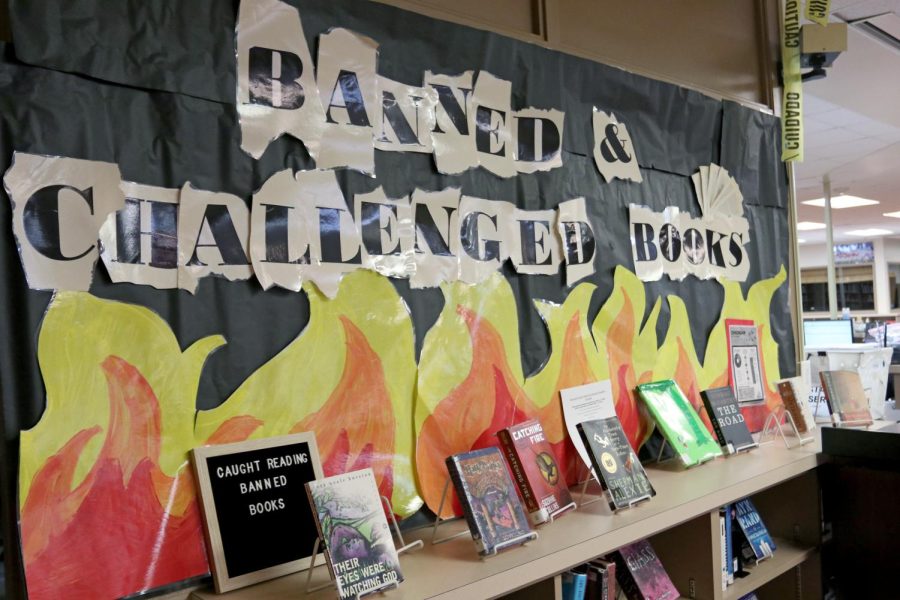Standing against censorship
School takes a stand against book banning, celebrates challenged and banned books with displays and contests
According to CBS News, over 1,600 books have been banned in U.S. schools so far in 2022. Media Center Specialist Jillian Thomas is taking a stand against censorship with a banned books display and contest for National Banned Books Week.
September 21, 2022
HCP’s librarian Jillian Thomas took action against the banning of books in public libraries by getting the student body involved in a bookmark design contest for banned book week.
Banned book week is nationally recognized during Sept. 18-24, and Thomas is using it as an opportunity to educate students. Books across the nation are being challenged in public libraries by politicians, the majority being books that mention race, sexual orientation, or gender identity. People across the nation have been advocating against censorship for many years.
Thomas decided to inform the student body by holding a banned bookmark design contest. Students found a book that they find important from their childhood that is being or has been challenged and design a bookmark inspired by it. Some books may include “The Wizard of Oz,” “The Lorax,” “Harry Potter,” and more. The contest was held from Sept. 1-20. The winner will be announced on Friday, Sept. 23, after votes are submitted. Thomas said she hopes it will get students to think about banned books and get them involved in the library program.
“Books are representative of the human experience; they are representative of information. Of having a way to see the lives of people who are not like you. While not every book is for everyone, there are books for everyone in the library,” Thomas said.
Thomas, like many others, believes that the issue with censorship is that there is nothing defining what is okay or what is not. There is no defined limit to how much an issue can be mentioned, causing hundreds of books to get banned. They believe it can take away experience from someone who could need it.
“My goal with banned books week is to provide the information and let students make their own decision of what they believe about it,” Thomas said.
The promotion of Banned Book week introduced the situation to many students. Many have formed their own opinions of it and stand behind the action that Thomas is taking. According to sophomore Nallely DeLeon, “They most likely support the cause because they have felt the impact of a book themselves.”
“I think books should not be banned because they have critical information and knowledge that people should know. People should be allowed to read what they want,” said sophomore Sarah Tirrell.
Tirrell said they believe it is important that people read books that represent the past so future generations will not repeat the same mistakes. Tirrell believes that people can find a type of comfort in books that some cannot find anywhere else, causing books to be many people’s safe haven. They feel that banning books will cause far more harm than good.
Thomas said that the best way for a student to protest is to read a book that is being censored. The more a book is read, the more it can reach someone who needs it.
“Life is not rainbows and perfect. People have obstacles,” she said. “One of my goals is for the library to have books that indicate that.”


